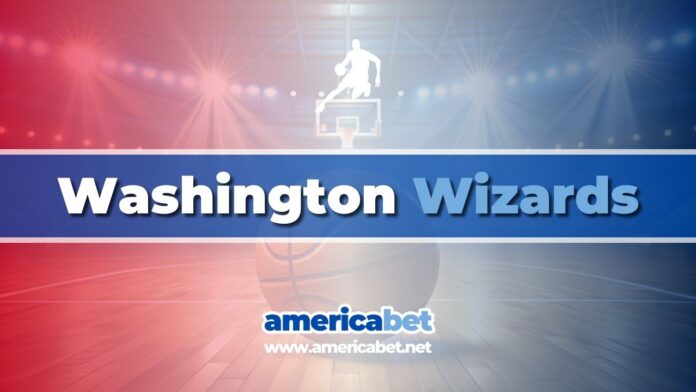Introduction to the Washington Wizards
The Washington Wizards, a prominent professional basketball team based in the heart of the United States’ capital, Washington, D.C., are a fixture in the world of American basketball. Established in 1961, originally as the Chicago Packers, the team has undergone several name changes—from the Zephyrs to the Bullets, and finally, the Wizards in 1997. This rebranding was part of a broader initiative to better reflect the community and cultural ethos of the capital city.
The Wizards are a member of the Eastern Conference’s Southeast Division in the National Basketball Association (NBA). Over the decades, the team has carved out a significant place for itself in NBA history, celebrated for its vibrant team dynamics, strategic gameplay, and the ability to foster top-tier talent. Notably, the Wizards boast a history highlighted by a NBA Championship win in 1978, underlining their competitive spirit and capability to rise to the occasion.

Kanison Charicha | Dreamstime.com
Playing their home games at the Capital One Arena, located in the bustling Chinatown neighborhood, the Wizards have not just been a sports team but a beacon of entertainment and local pride. The arena often buzzes with fans who are passionate and loyal, contributing to the electrifying atmosphere that game nights are known for.
The team’s influence extends beyond just sports; it is woven into the cultural and social fabric of the area, often involved in community outreach and charitable activities. This blend of on-court success and off-court engagement makes the Washington Wizards a beloved team with a rich legacy and a bright future in the NBA.
History of the Washington Wizards
The Washington Wizards’ journey through the annals of NBA history is marked by a series of transformations and notable achievements that mirror their resilience and adaptability. Originating in 1961 as the Chicago Packers, they were the first NBA expansion team in the post-original franchise era. A year later, they rebranded to the Chicago Zephyrs before moving to Baltimore in 1963, becoming the Baltimore Bullets. This era saw the beginning of their establishment as a competitive force within the league.
The Bullets moved to the Washington, D.C. area in 1973, eventually settling on the name Washington Bullets. The late 1970s represented the pinnacle of the franchise’s achievements, culminating in an NBA Championship victory in 1978. This period was marked by intense and memorable matchups, particularly in the playoffs, showcasing the team’s tenacity and skill.
In 1997, in response to broader societal concerns and the desire for a team that better represented the nation’s capital, the franchise was renamed the Washington Wizards. This change coincided with a move to the newly constructed Capital One Arena, which remains their home ground. Since then, the team has experienced varied success, including several playoff appearances in the 2000s and 2010s, driven by a new generation of players who brought fresh energy and talent to the court.
Washington Wizards Key Figures
Throughout its history, the Washington Wizards (and its previous incarnations) have been shaped by numerous key figures whose influence has left a lasting impact. Wes Unseld, a formidable center and later a coach, remains one of the most iconic figures in the team’s history. His remarkable performance during the 1978 season helped secure the franchise’s only NBA Championship, earning him the Finals MVP award.
Another pivotal figure is Elvin Hayes, who joined the Bullets in 1972 and played a crucial role in leading the team to multiple playoff appearances, including the 1978 championship win. His scoring prowess and defensive skills made him a standout player during his tenure with the team.
In more recent years, players like John Wall and Bradley Beal have become synonymous with the Wizards’ identity. Wall, known for his speed and playmaking abilities, and Beal, recognized for his sharpshooting, have both been instrumental in guiding the team through numerous postseason runs.
Off the court, influential managers and executives have also played significant roles. Notably, Ernie Grunfeld, serving as the team’s general manager for over a decade, made several key decisions that shaped the team’s roster and strategic direction during his tenure.
These figures, among others, have helped craft a narrative of resilience, community engagement, and sporting excellence that defines the Washington Wizards. Their contributions not only highlight individual greatness but also underscore the collective spirit that drives the franchise forward.
Washington Wizards Key Figures
The Washington Wizards have been shaped by numerous key figures whose contributions have significantly impacted the franchise. Wes Unseld stands out as one of the most influential figures in the team’s history, serving both as a player and a coach. His leadership and formidable presence on the court were pivotal during the Wizards’ 1978 NBA Championship win, and he remains a symbol of the franchise’s perseverance and success.
Elvin Hayes, another legendary player, is renowned for his scoring ability and rebounding skills, which were instrumental during his time with the team, particularly in leading the Wizards (then Bullets) to their championship victory. His tenure with the team is marked by numerous All-Star appearances and a lasting legacy as one of the greats in the sport.
In more recent years, John Wall and Bradley Beal have become the faces of the franchise. Wall, known for his explosive speed and dynamic playmaking, and Beal, a prolific scorer, have both led the team through significant playoff runs and have each carved out their own places in Wizards’ lore.
Off the court, Ernie Grunfeld, the team’s former general manager, played a key role in shaping the team’s modern era. His tenure saw the drafting of pivotal players and strategic moves that influenced the team’s composition and competitive outlook.
Cultural Impact
The Washington Wizards have made a substantial impact on the local culture in Washington, D.C., fostering a passionate fanbase and creating a vibrant sporting atmosphere. The team’s games at the Capital One Arena are a focal point for local entertainment, drawing fans from across the region who come to support the team in a city known for its political significance rather than its sports legacy.
The Wizards have cultivated several rivalries over the years, most notably with the Cleveland Cavaliers and the Boston Celtics, which have galvanized the fanbase during playoff matchups and regular season encounters. These rivalries enhance the game-day experience and are a significant part of the team’s cultural fabric.
Fan traditions also play a crucial role in the team’s culture. From pre-game rituals to post-game celebrations in local establishments, the fans of the Wizards are known for their loyalty and spirited support. Community events, charity initiatives led by players, and fan meet-ups contribute to a sense of community and belonging, further solidifying the team’s role in the local culture.
Moreover, the Wizards’ commitment to community outreach has strengthened their ties with fans and residents alike, making the team a beloved entity in Washington, D.C. Their involvement in local issues and support for various social causes have made them an integral part of the city’s cultural landscape, transcending the boundaries of mere sports entertainment.
Stadium Information: Capital One Arena
Capital One Arena, located in the bustling Chinatown neighborhood of Washington, D.C., serves as the home ground for the Washington Wizards. Opened in December 1997, this arena has not only been a premier venue for basketball but also for ice hockey, concerts, and other significant events, contributing to its status as a central hub of entertainment within the city.
With a seating capacity of approximately 20,356 for basketball games, Capital One Arena offers one of the most vibrant and engaging fan experiences in the NBA. The arena is known for its modern facilities, which include state-of-the-art video and audio technology, providing fans with an immersive viewing experience. Its location is strategically chosen to be accessible by various modes of public transportation, making it a convenient and popular destination for fans and tourists alike.
Over the years, Capital One Arena has hosted several important NBA games, including playoff matches and memorable regular-season encounters, making it a historic site in the annals of professional basketball.
Achievements
The Washington Wizards, through various phases of their history, have accumulated a series of significant achievements that highlight their competitive spirit and success in the NBA. Here are some of their major accomplishments:
NBA Championship (1978): The pinnacle of the Wizards’ achievements, when they, known then as the Washington Bullets, captured their only NBA Championship. This victory remains a high point in franchise history.
Eastern Conference Champions (1978): Alongside their NBA Championship, the 1978 season saw them clinch the Eastern Conference title, showcasing their dominance in the league during that period.
Division Titles: The Wizards have won several division titles, including their first in 1971 when they were the Baltimore Bullets and subsequently as the Washington Bullets and Wizards. These titles have been significant markers of their regular-season success.
Playoff Appearances: The Wizards have made numerous appearances in the NBA playoffs over the decades, highlighting their consistent performance and enduring competitiveness in the league.
Individual Awards: Various Wizards players have received individual NBA honors, including MVPs of the All-Star games, All-NBA Team selections, and Rookie of the Year awards, which underscore the talent and impact of their players on the basketball landscape.
These achievements not only reflect the historical success of the Washington Wizards but also their ongoing legacy as a formidable team in the NBA.
Films and Documentaries Featuring the Washington Wizards
The Washington Wizards, with their rich history and notable presence in the NBA, have been featured in various films and documentaries that explore the realm of basketball and sports culture. Here are a few notable mentions:
“The Other Dream Team” (2012) – While primarily focused on the Lithuanian national basketball team, this documentary includes significant segments on the impact of international players in the NBA, featuring the Wizards prominently during the era of their player Sarunas Jasikevicius.
“NBA at 50” (1996) – A documentary made to celebrate the NBA’s 50th anniversary, it includes moments from the history of the Wizards, especially highlighting their championship season.
“Gilbert Arenas: The Rise and Fall” – This documentary focuses on the career of Gilbert Arenas, one of the most electrifying players to have played for the Wizards, exploring his peak years in Washington and his impact on the team.
These films and documentaries provide a deeper insight into the Wizards’ contributions to the NBA and the broader sports culture, making them essential viewing for fans of the team and the sport.
Social Media Presence of the Washington Wizards
Fans looking to stay updated with the latest news, games, and community events can follow the Washington Wizards through their official social media profiles:
Twitter: @WashWizards
Facebook: Washington Wizards
Instagram: @washwizards
YouTube: Washington Wizards
Additionally, several fan-run sites and social media profiles provide unique content, fan interactions, and detailed discussions about the team:
Bullets Forever – A popular blog and community that offers in-depth analysis, game previews, and post-game discussions. Available on Twitter @BulletsForever and their website bulletsforever.com.
WizardsXTRA – Another fan-favorite source that provides updates, fan engagement, and commentary across platforms like Twitter @WizardsXTRA and Instagram.
These platforms are great resources for fans to engage with other supporters and follow their favorite team closely.

